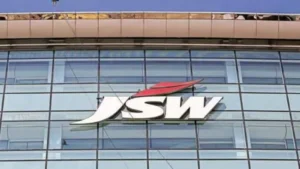Adani raises $1.4 billion from stake sale in 3 companies; $9 billion raised in 4 yrs
In a statement, the Port Energy Group said it was “committed to raising funds to meet the 10-year plan for its Transformative Capital Management Program established in 2016 to implement plans for its various portfolio companies.” rice field.
Adani Group has denied all allegations by Hindenburg and is plotting a comeback strategy
Billionaire Gautam Adani has raised USD 1.38 billion (Rs 11,330 crore) through stake sale in three group companies, taking the total capital raised over four years to USD 9 billion as the conglomerate draws interest from a cross-section of investors.
In a statement, the ports-to-energy conglomerate said it ”is committed to raising capital to fulfill its 10-year roadmap of the transformative capital management program, which was formulated in 2016 to execute the plans for various portfolio companies.”
”In the most recent instance, Adani family has raised USD 1.38 billion (Rs 11,330 crore) through stake sale in the three portfolio companies – Adani Enterprises Ltd, Adani Green Energy Ltd and Adani Transmission Ltd,” it said. ”This ensures higher capital availability at the group level, for growth as well as near-term commitments of both debt and equity for the portfolio companies over the next 12-18 months.”
In addition, the three portfolio companies have also received board approval for primary issuances through a share sale to investors as the group continues to build on a comeback strategy to emerge from allegations of fraud levelled by a US short-seller. Adani Enterprises Ltd, the group`s flagship firm, plans to raise Rs 12,500 crore through share sale to investors while electricity transmission company Adani Transmission another Rs 8,500 crore. Its renewable energy firm plans to raise Rs 12,300 crore. This comes five months after Adani Enterprises was forced to withdraw its Rs 20,000 follow-up offer (FPO) following reports of the Hindenburg case. The offer was fully subscribed, but the company refunded the subscriber.
U.S. short-seller Hindenburg Research released a scathing report in January alleging accounting fraud and stock manipulation at the Adani Group, triggering a stock market crash that pushed the conglomerate’s market capitalization from a record low to about $145 billion. blew the dollar.
The Adani Group denies all of Hindenburg’s allegations, including reiterating its ambitions, canceling the acquisition, prepaying debt to address cash flow and borrowing concerns, and committing to new projects. Planning a comeback strategy that includes cutting spending.
Since May, the founders have sold shares in two installments to GQG Partners, a global equity investment giant based in the United States. It most recently raised $1.38 billion earlier this month. “In March 2023, a similar sale of shares by the same family totaling US$1.87 billion (Rs. 15.446 billion) resulted in the full prepayment of the margin equity loan and a rise in interest rate environment. “There is a deadline,” he said in a statement.
The group has been trying to win back market confidence with a series of investor roadshows, early debt repayments, and plans to scale back its pace of spending on new projects. ”Adani Group, which started the capital transformation journey for its core infrastructure portfolio in 2019, has raised over USD 9 billion in a short span of four years,” it said.
“The programme paved the way for long-only global investors to participate in the world`s largest and fastest-growing infrastructure development where Adani portfolio offers a one-stop play through its portfolio companies spread across the infrastructure spectrum from energy and utility to transport and logistics.
It has attracted investments across various listed entities – Adani Ports and Special Economic Zone Limited (APSEZ), Adani Green Energy Limited (AGEL), Adani Transmission Limited (ATL), Adani Total Gas Limited (ATGL) and Adani Enterprises Limited (AEL).
”In line with the group`s capital management philosophy of enabling participation of strategic long term investors, Adani has attracted large-scale investments from the likes of Qatar Investment Authority (QIA), TotalEnergies (TTE) , International Holding Company (IHC), as well as GQG Partners (GQG) along with its co-investors Australia Super, Goldman Sachs, University of Texas, Delaware Public Employees Retirement System, Master Trust Bank of Japan, Missouri Education Pension Trust, Abu Dhabi Investment Authority, Universal Investment Luxembourg, New York State Common Retirement Fund and Employees Retirement System of Texas,” it said.
QIA invested US$452 million in ATL in February 2020 and TTE invested US$3.3 billion in a joint venture with APSEZ, ATGL and AGEL in April 2019. IHC invested US$2 billion in AEL, ATL and AGEL last May, and GQG invested US$3.19 billion in AEL, ATL, AGEL and APSEZ this year.
“The trust and confidence exhibited by these large global investors is a testament to the strength of the Group’s businesses and the commitment of the Adani Group to the highest levels of governance. We have demonstrated our ability to raise capital across the company and achieve our stated goals,” the statement said.
AEL is one of the world’s largest incubators, focused on building infrastructure companies. Strategic focus areas include airports and green hydrogen business. Green hydrogen will enable the decarbonization of the industrial and mobility sectors, helping India push towards primary energy self-sufficiency.
AGEL is India’s largest and fastest growing renewable energy company with a business portfolio of 8.1GW. It aims to have 45 GW of renewable energy capacity in operation by 2030, while also being the most cost-effective renewable electricity generator.
ATL is India’s largest private energy solutions provider, with a strong presence in the transmission and distribution sector and a growing focus on smart meters. Smart meters enable distribution companies to efficiently integrate and plan renewable energy into the grid, making them an essential tool for decarbonizing the energy sector.





